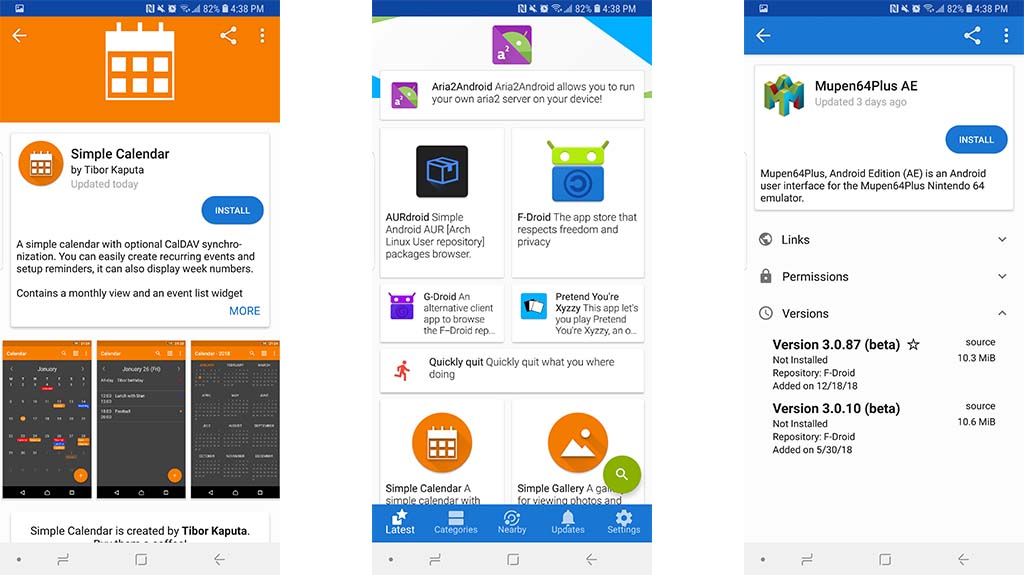Adblock vs Adblock Plus – PC Guide
Both Adblock and Adblock Plus are impressive at blocking the majority of ads on any webpage. The performance can be clouded by the fact that they both allow acceptable ads to remain on a page, causing the user to think that it’s not working as effectively as it should be.
They both allow advertisers to pay them to whitelist their ads as well, meaning that you’ll still see them. Some websites also block adblockers from working to continue earning from their advertising spaces, meaning that Adblock and Adblock Plus won’t work on some websites at all.
Adblock runs slower on both Chrome and Firefox than Adblock Plus or using the browser without an adblocker. The more tabs you have open, the slower your browser will run as the more pressure the adblocker is under.
Adblock Plus works quicker on Firefox and with multiple tabs open, so you won’t see such a difference in the performance with this adblocker. Adblock Plus definitely wins in terms of performance and you should opt for this one if you constantly have lots of tabs open.
Usability
There is no use in having an adblocker that is impossible to use. Adblocking technology should be simple and easy to use for the user without them having to deal with the backside of the technology.
Adblock and Adblock Plus ensure that the usability is good for their users. They are quick to install, quick to start using, and quick to turn off if you want to. If you don’t want to use any of the advanced features you don’t need to and can easily use the default options with no issues.
In the reviews for both of these adblockers, Adblock Plus is more user-friendly than Adblock. This is because Adblock Plus can show you how many ads are blocked on the current webpage you’re on while Adblock doesn’t. Having said this, Adblock is not difficult to use in any way.
Adblock Plus won the usability test, but it was a tough competition. If you chose to opt for Adblock, you wouldn’t find it impossibly difficult to use.

Tutorials – Adblock Plus
What is an adblocker?
How to block ads
How to disable online tracking
How to disable social media buttons
How to block ads on YouTube
How to block ads on Facebook
An adblocker for Chrome or Firefox is an extension (or add-on) to your browser, which adds functionality to your browser so it can filter content. Adblockers itself have no functionality, in the sense that they do not block anything until it is “told” what to do. The so-called filterlists tell the adblocker what to block. These filterlists, are basically an extensive set of rules, which tell Adblock Plus what to block. The lists are created and maintained by a large online community.
While it can do so much more, the core function of Adblock Plus is to block annoying advertisements. These tutorials shows you how to block obtrusive ads in the different browsers.
How to block ads in Firefox
Adblock Plus for Firefox allows you to get rid of all annoying advertising, such as YouTube ads, Facebook ads, banners, pop-ups, and many others. If you do not have the Mozilla Firefox browser installed yet, please install it from Mozilla. If you want to block ads in a different browser please see the tutorials of installing Adblock Plus for Google Chrome and Opera.
The easiest way to add Adblock Plus to Firefox is to simply go to the Firefox installation page and click on the install button. A small screen will open on the left side of your browser, please click on “Allow”. Then, another small screen will appear, where you have to click on “Install now”. This will add Adblock Plus to your browser, and you will be protected against all obtrusive ads.
You can also install Adblock Plus through Mozilla Firefox. First, go to Adblock Plus in the Mozilla Add-ons section. Then, when you have opened the link, the following screen appears:
Please click on the big green button “Add to Firefox” to install Adblock Plus. Then, Firefox will ask you to “Install add-ons only from authors whom you trust. ” please confirm this by clicking on “Install”. After confirming this, all annoying ads will be blocked.
A default filterlist will be installed the first time you install Adblock Plus, based on the language of your browser. To add other filtersubscriptions, read more here. For more advanced options, like custom creating filter, please go here.
How to block ads in Google Chrome
Currently, annoying ads are blocked on 100 million devices. If you use Google Chrome, use the Adblock Plus extension to get rid of all annoying advertising. Adblock Plus blocks all annoying ads on the web, like YouTube video ads, flashy banner ads, Facebook ads and much more. It even blocks pop-ups which are not blocked by your browser. This tutorial will show you how to install Adblock Plus, and how you can block ads in Google Chrome.
Add Adblock Plus to Google Chrome
There are two ways how you can add Adblock Plus to your Chrome browser. First, you can add our ad blocker for Chrome by going to the Chrome installation page and clicking on the green install button. A small screen will appear asking you to confirm to install Chrome’s Adblock Plus. Please click “Add” to install Adblock Plus. You are now protected against annoying ads.
You can also add Adblock Plus through the Google Chrome Webstore. To install our adblocker, access the Webstore. Click on “Add to Chrome”, and click “Add” to confirm.
Adblock Plus automatically installs a default filterlist, based on the language of your browser. If you wish to learn how to add other filterlists, you can read more here. For more advanced options, like disabling tracking, click here.
How to block ads in Opera
To block ads in Opera, you only need to install Adblock Plus. The easiest way is to go to the Opera Add-ons page and click on “Add to Opera”. A small pop-up will ask you to add Adblock Plus to your Opera browser. Click on “Install” to protect yourself against all online ads.
How to block ads on Android
If you want to block all ads from your Android device, you can simply go to our homepage with your Android device and download the application “Adblock Plus”. Before you download it, you should make sure your device allows app installation from unknown sources. If you do not have a rooted device, you will probably need to configure the proxy manually. After that, you will be protected against ads.
There are many companies that collect data about your browsing habits across multiple websites. Even your browsing history is being examined and collected. Few users have no problems with these practices, because firms can better target ads tailored to their needs. However, there are hundreds of ad agencies that collect a loads of data about you and your browsing habits. If you do not want your online behavior being tracked by other companies, you can use Adblock Plus to disable all online tracking practices. According to this Stanford University Study, Adblock Plus is the best solution to protect yourself against online tracking.
See How to disable social media button if you want to disable tracking from companies like Facebook and Google by removing the social media buttons from all websites.
Disable online tracking in Firefox
Online tracking can be disabled by adding a new filterlist subscription to Adblock Plus. The so-called “EasyPrivacy” filter will block all tracking requests made by websites. To add this list to Adblock Plus, simply click here, and click “Add subscription”.
Disable online tracking in Google Chrome
In Google Chrome, Adblock Plus can disable all unwanted tracking practices from advertising companies. Disabling tracking can be done by installing and enabling the “EasyPrivacy” filterlist subscription, by opening this dialog. Click on “Add” to protect yourself against tracking in Chrome.
Almost every website today contains buttons of social media platforms, such as Facebook, Twitter, Google + and others. Even if you never click these buttons, your browsing data is still being transferred to these platforms in order to create a profile based on your browsing habits.
If you want to browse the web without being observed by the social media websites, Adblock Plus offers an easy solution to remove these buttons.
Disable social media buttons in Mozilla Firefox
If you want to block social media buttons in Firefox, just follow these easy steps: simply click here and choose “Add subscription”.
Disable social media buttons in Google Chrome
In Adblock Plus for Google Chrome it is very simple to remove social media buttons by adding a new filterlist to subscriptions. All you have to do is simply click here, and then click “Add” in the filterlist settings of Adblock Plus.
One of the greatest online annoyances is the 30-second commercials you have to sit through to see a 20-second movie on YouTube. Although people are complaining about this continuously, it is expected that this way of advertising will only grow in the near future. With Adblock Plus, it is very easy to block the video ads on Youtube. Just install Adblock Plus and all YouTube video ads will be blocked.
For Google Chrome, Adblock Plus can be installed by visiting the Chrome installation page and clicking on the install button. After the small pop-up window pops up, click on “Add”. Adblock Plus is now automatically blocking all annoying YouTube video ads.
For Firefox, you can install Adblock Plus by visiting the Firefox installation page and clicking on the install button. Confirm the installation by clicking “Allow” on the first one, and “Install Now” on the second. Out of the box, Adblock Plus automatically blocks all those annoying video ads from YouTube.
Getting tired of ads cluttering your Facebook timeline? Use Adblock Plus to block all Facebook ads. After installation, Adblock Plus automatically blocks all ads, including Facebook advertising.
For Google Chrome, Adblock Plus can be installed by visiting the Chrome installation page and clicking on the install button. Just confirm the installation by clicking on “Add”, and refresh Facebook. You will see that all Facebook ads will be blocked!
Adblock Plus for Firefox can be installed by visiting the Firefox installation page and clicking on the install button. Firefox will ask you to confirm the installation of the add-on twice, so click on “Allow” and then “Install Now”. After the installation process, Adblock Plus will be blocking all those annoying Facebook ads.

Is Adblock (Plus) a security risk?
The way this information is spread by United Internet is misleading (I am trying hard to avoid saying “libel”). The allegation as it stands is clearly wrong by all objective means, and the presentation is defamatory.
Of course, in principle, one has to admit that Adblock (Plus) is of course a potential security risk. Whether this risk warrants a reasonable concern is another thing.
Adblock (Plus) might be a security risk for three reasons:
It is software that runs on your computer, which could, like all software, in principle do almost anything. Including showing false information or stealing your data.
It does modify web page contents, that is what blocking ads is about. Certainly, a software which is well-known to modify the contents of web pages could modify the contents in a malicious way and go unnoticed much easier than another software.
It performs this task by matching a downloadable list of regular expressions from a range of (uncontrolled/unknown) third parties, such as EasyList
So, if you are in ultra-paranoia mode, you might fear that either someone at EasyList (or another filter list provider) modifies the filter list so they do something malicious, or a hacker hijacks the site. Your Adblock Plus addon would presumably download the malicious list during its daily/weekly update without knowing and without a means of verification (there is a checksum that can be embedded, but this only protects from accidential corruption, not malicious modification).
As a result, such a malicious block list could in theory cause the addon to do “evil things”.
Luckily, apart from JS exploits, there is not too much harm that could realistically be done via this attack vector due to the way Adblock works (it will match an arbitrary regex, but it won’t do arbitrary susbstitutions, so hiding some elements it shouldn’t hide or letting some ads through is pretty much the worst possible case).
On the other hand, a JS exploit could be used against you without Adblock Plus running in the first place.
Also, obviously, like any third party software (including Firefox or Chrome itself! ) the Adblock Plus addon itself could steal your data. All you can say at the present time is that so far this has not happened.
Then again, almost all of the big commercial players in the business are doing untrustworthy things on a daily base, which nobody objects against.
Now you have to ask yourself how likely it is that Adblock Plus will indeed steal user data, and how likely it is that such a thing would go undetected for longer than a day or two on a widely-deployed open-source project.
Frankly, if you believe that this is a serious and realistic threat which is likely to affect you, then you must also believe that the Microsoft in collaboration with the NSA already builds identity theft functionality right into Windows and that every computer has a secret “kill switch” which the US DoD can activate at will (that too, is in principle possible, and it’s actually more likely to be true than the author of Adblock stealing your savings).
You should not trust GMX either in this case, since they will (note the wording, will, not may) share all your personal data and traffic information in a malicious and unethical way with other parties (at least with US agencies, due to Schröder’s 2001 treaty, but you have no way of telling with whom else).
You also shouldn’t trust 1&1 (another member of United Internet) because they will share your personal data with who-knows-whom (being an US based company). Nor Google, nor the other half of the internet for that matter.
On the other hand, Adblock Plus has demonstrably prevented malware from being installed on users’ computers in the past.
Frequently Asked Questions about adblock v adblock plus
Should I use Adblock Plus?
If you use Google Chrome, use the Adblock Plus extension to get rid of all annoying advertising. Adblock Plus blocks all annoying ads on the web, like YouTube video ads, flashy banner ads, Facebook ads and much more. It even blocks pop-ups which are not blocked by your browser.
Can Adblock Plus be trusted?
It is true that today, the AdBlock extension is safe. We know that it will not steal your data, even though—as the other answers point out—it has the technical ability to do so. However, Chrome extensions are silently and automatically updated.Feb 27, 2014
Is Adblock Plus really free?
Adblock Plus (ABP) is a free and open-source browser extension for content-filtering and ad blocking.

